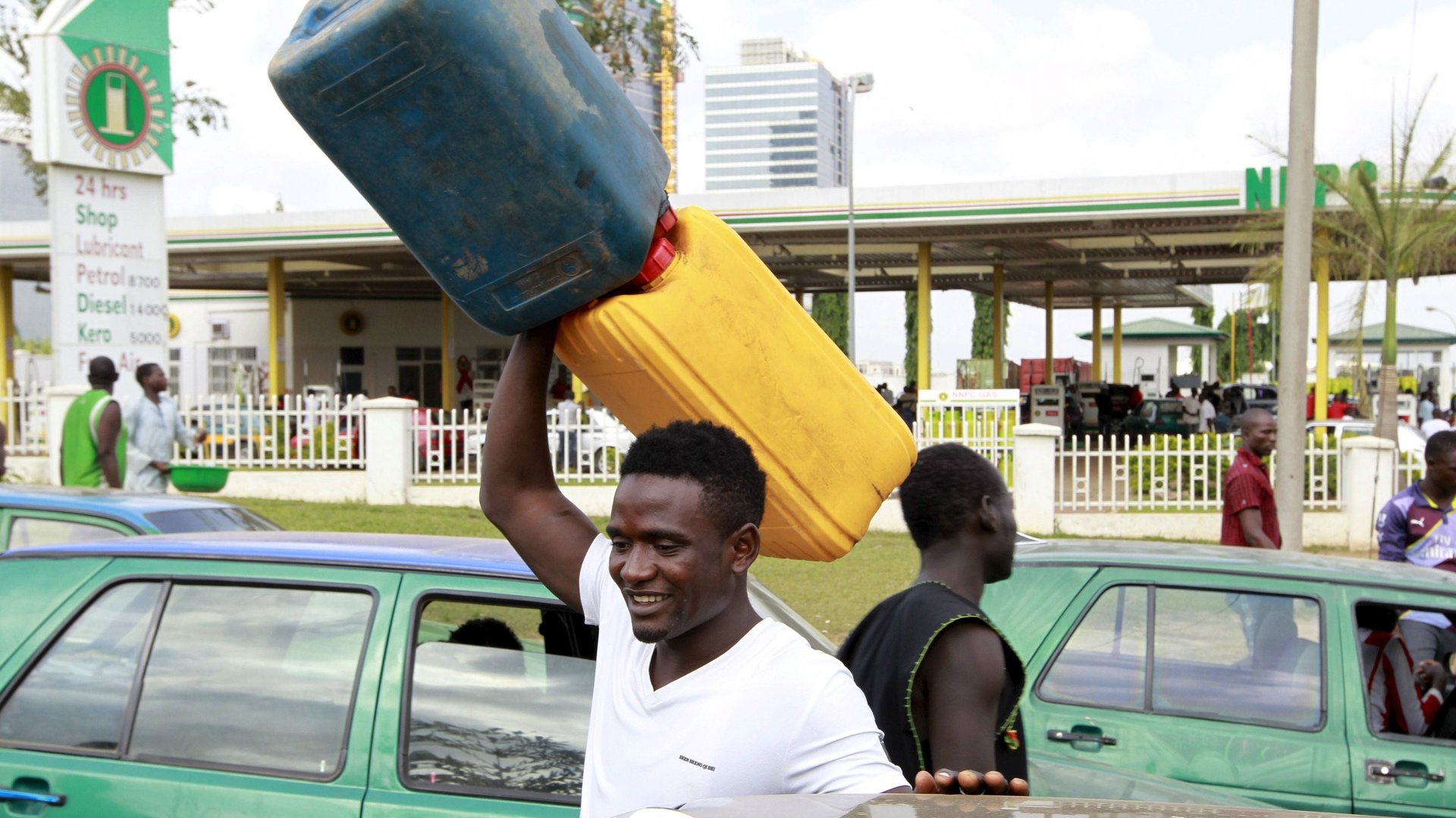Nigeria’s Goodluck Jonathan just did incoming Buhari a big favour with the fuel crisis
As Nigeria gradually pulls back from the brink of the ‘Petrocalypse‘, it is just the latest example of why the petroleum sector of one of the world’s biggest exporters needs urgent reform.


As Nigeria gradually pulls back from the brink of the ‘Petrocalypse‘, it is just the latest example of why the petroleum sector of one of the world’s biggest exporters needs urgent reform.
Between the petrol marketers, Nigerian government, the long lines for overpriced petrol and the endless power cuts, millions of people have been caught in the middle, without alternative means of generating power to make life bearable.
Having a whole country held to ransom by a few marketers has a national security dimension. While the scarcity lasted, banks, radio stations and other businesses were forced to close early, or not open at all, and phone and Internet companies faced disruptions of service. Had it continued, the ability of the entire country to communicate and do business would have been thrown in jeopardy.
Some have blamed this latest scarcity on the continued existence of the petroleum subsidy–which the government uses to keep petrol pump prices artificially low. But it also means the government incurs a hefty bill trying to make oil marketers whole when marketers have to sell below market rates. These same observers blame the January 2012 protests called ‘Occupy Nigeria’, triggered by president Goodluck Jonathan administration’s decision flawed attempt to end the subsidies. The view is that had the subsidy been removed, then the marketers would not wield so much influence.
This is wrong for a number of reasons.
The subsidy question
On January 18th this year with crude oil prices less than $50 a barrel and the subsidy bill at nearly zero, the Nigerian government, rather than remove the subsidy like it always argued, further reduced prices at the pump by 10 Naira ($0.05) a litre as elections approached. Prices have picked up since then and the currency has been devalued, which means that the subsidy bill has spiked to over $1 billion. The government has struggled to pay that bill.
Secondly, most Nigerians agreed back in 2012 that the subsidy had to go, but the Jonathan administration had no credibility to carry out such painful reforms. There was a lack of political will to lead by example through cutting wasteful expenditure in the government and prosecuting corruption. The feeling was that any more water poured into a basket would just waste away like always. Subsequent events have vindicated that position, and Goodluck Jonathan was seen as soft on corruption, a factor that was a major plank which led to his defeat in the elections.
Muhammadu Buhari, who takes the oath of office this weekend, has no such credibility deficit. In addition to a personally austere lifestyle, he is perceived as much harder on corruption than the man he is replacing. As such, his government will have much more latitude to do what it feels it must to fix the situation, which may not may not include removing the subsidy.
In addition, Buhari has experience in the sector. He was chairman of the national oil company NNPC and later minister of petroleum in the late 1970s, during which two of Nigeria’s four refineries were built. None of those four refineries are currently fully functional.
This latest scarcity of petroleum products is one of the worst many can remember, because almost no one can remember a situation where major businesses had to close early and flights were grounded due to a lack of diesel. When you add the revelations of the NNPC forensic audit–which indicted the corporation and called the way it operates unsustainable – as well as the problem of kerosene subsidy, Nigerians are tired and clearly desire a lasting solution.
Therein lies the opportunity for Buhari’s government.